Gaza becoming an inescapable quagmire for Israel
Around dawn, on Saturday October 7th, thousands of rockets fired from Gaza rained down on Palestinian territories occupied by Israel. The projectiles reached as far north as Tel Aviv and as far east as al-Quds. Shortly afterwards Palestinian fighters stormed towns in the south, launching attacks, taking some 250 captives, including members of the military.
The combined land, sea, and, air, attack was conducted by Hamas and was supported by Palestinian Islamic Jihad.
The ten hour long al-Aqsa Storm operation, which caught Israel's military and intelligence services off guard, dealt a humiliating blow to Israel's much touted military and intelligence system.
The meticulously planned operation by Palestinian resistance came a few days after the Israeli Prime Minister, Benjamin Netanyahu, delivered a boastful speech at the United Nations announcing the establishment of a new Middle East centered around Israel.
Today I bring this marker to show a great blessing, the blessing of a new Middle East between Israel, Saudi Arabia and our other neighbors. We will not only bring down barriers between Israel and our neighbors, we'll build a new corridor of peace and prosperity that connects Asia, through the UAE, Saudi Arabia, Jordan, (and) Israel, to Europe.
Israeli Prime Minister, Benjamin Netanyahu
Following the attack, the Israeli military launched a devastating onslaught on the Gaza Strip, a densely populated enclave which has already been under siege for 16 years following the victory of Hamas in the 2007 Palestinian parliamentary elections.
Over 13,000 Palestinians, most of them women and children, have already been killed in the Israeli attacks on Gaza since October 7th. The onslaught, described as collective punishment by the United Nations, is seen as a desperate attempt by the Israeli officials, spearheaded by Netanyahu, to cushion the blow the occupying regime received from the Palestinian resistance groups.
The damage done to Israel, however, goes beyond the intelligence and military flop. It is also a political, economic and psychological catastrophe. The self-proclaimed invincible regime has shown itself to be vulnerable, weak, and impotent.
The economic cost of the Gaza war on Israel is substantial and multifaceted.
One of the most immediate and visible impacts is on the Israeli stock market, as in times of conflict, investors often become wary and seek safer investment opportunities. The Tel Aviv Stock Exchange, TASE, has lost almost $25 billion of value since October 7th. Rating agencies have already warned they could downgrade their assessment of Israel's credit worthiness.
The Bank of Israel has trimmed its economic growth estimate for 2023 to 2.3% from 3% and to 2.8% from 3% for 2024. Israel's war on Gaza is costing its economy around $260 million every day. According to the Israeli finance ministry, the war has cost almost $8 billion in losses to the Israeli economy so far, and the regime is now forced to finance it by issuing bonds. As a result, Israel is under pressure from both the Israeli public and markets to cut all discretionary spending, not related to the war.
The tourism industry has also been significantly affected by the conflict.
Tourism in the occupied territories fell by 76% annually in October because of the Gaza war and the cancellation of the majority of flights to and from Tel Aviv, leading to a loss of revenue for businesses and individuals working in the tourism sector, according to a report by the Israeli Central Bureau of Statistics
The Gaza war has also taken a heavy toll on Israel's high tech industry. The technology sector, which accounts for 18% of the regime's GDP and half of all exports, is also in peril.
A new survey by the Israel Innovation Authority and the Start-up Nation Policy Institute reveals about 70% of Israeli tech firms and startups are facing disruptions in their operations and a decline in employee performance, as nearly a fifth of their employees have been mobilized for reserve duty. The Israeli military has already called up more than 300,000 reservists, many of whom are working in local tech companies.
Many of the Israeli tech companies have been forced to postpone or cancel orders and projects. About two thirds of the companies said they had technical or operative problems connected to the war. In addition, about 40% of the tech firms in the survey lamented that their efforts to raise financing, including investment agreements, got cancelled or were put on hold.
Of the tech companies in danger of immediate closure, 60% reported funding difficulties. This has prompted the Israel Innovation Authority to launch an emergency funding plan which will allocate $25 million in aid grants to provide about 100 cash strapped startups with a lifeline.
Despite Israel's technological and military superiority, the regime is losing the narrative battle to the Palestinians, who are making significant inroads in terms of international public opinion.
Over the past few weeks, people across the world have rallied in solidarity with Palestinians in Gaza, condemning the Israeli genocide in the Gaza Strip. Demonstrations are almost daily occurrences across major cities from New York and London to Cape Town, Damascus, Rome and Karachi.
Despite the Western media's unconditional support and biased coverage of the Israeli atrocities against Palestinians, the Israeli regime is increasingly coming under fire on social media. People especially the members of the Generation Z, those born after 1996, are becoming more skeptical of the pro Israel propaganda propagated by the mainstream media.
The social media networks are now replete with anti Israel posts trending around the world.
We have seen an incredible outpouring of specially Gen Xers who do not believe this [the western narrative]; I think that they are completely detached from whatever the corporate media is selling.
We know that people like Tucker Carlson, for example, his audience, even though it was the most widely watched show on TV, it was a lot of boomers. Right? And the younger you are, the less inclined you are to watch corporate media, the less inclined you are to get your news from corporate media.
And you see that severe detachment from the Israeli stronghold on the narrative. And it's very encouraging because I have been out in the streets for the last two weeks and I have seen unprecedented historic demonstrations in Oregon for Palestine Solidarity. It is amazing and a lot of these actions were Jewish led.
And I met my Jewish friends there, colleagues who were radicalized on birthright, and now, they're out marching in the streets.
And a lot of Jewish activists are leading the way here with the historic demonstrations in the capitol, getting arrested. It's amazing.
Abby Martin, American Journalist
Israel has a long history of killing Palestinians in Gaza and the occupied West Bank. The war has resulted in the unprecedented isolation of Israel. The scandalous humiliation of Israel has been undermining its strategic and political standing in the region and across the world.
Arab regimes that normalized ties with Israel are now appearing more foolish with every passing hour.
Already failing politically before the Gaza war, the embattled Israeli prime minister was forced to form a fragile coalition. Netanyahu has faced nearly a year of massive weekly protests, demanding that he step down and is currently under intense pressure as more Israelis are criticizing his failure in controlling the crisis and securing the release of Israeli captives held by Hamas.
It is now becoming more evident that the war Israel is waging on Gaza has backfired and resulted in a failure for the regime.
It is clear today that they would rather fight on their feet. for justice and freedom than die on their knees in humiliation.
At the same time, Benjamin Netanyahu's legacy has already been marred by failure and is expected to go down the drain of history.
Israel's disregard for human life
Israeli strikes kill 88 Palestinians in northern Gaza
American voters plainly rejected complicity in Gaza genocide: Iran FM spox
ICC should issue more arrest warrants for Israeli authorities over Gaza genocide: UN expert
Israel using AI weapons co-produced by India in Gaza genocide: Report
Israel issues new evacuation orders, shortly launches strikes on southern Lebanon
VIDEO | Press TV's news headlines
From Iraq to Gaza: The great disconnect between British people and rulers
Syria condemns Israel's killing of 36 in 'horrific' strike on Palmyra




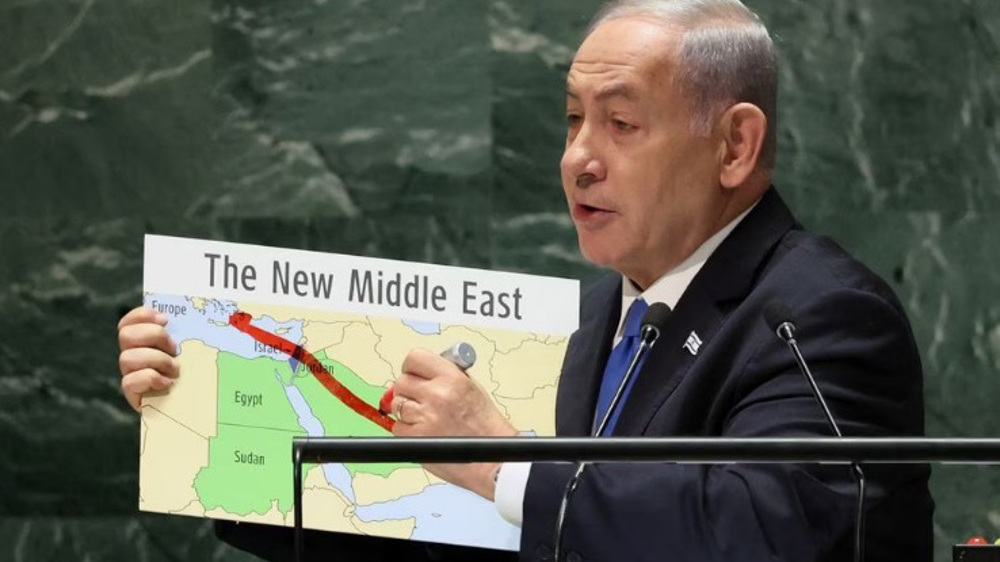
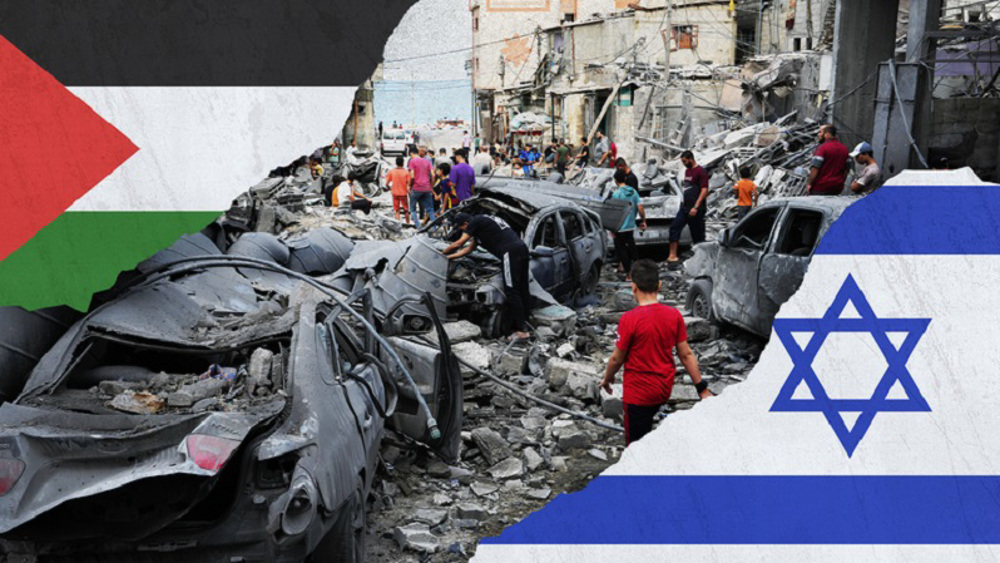
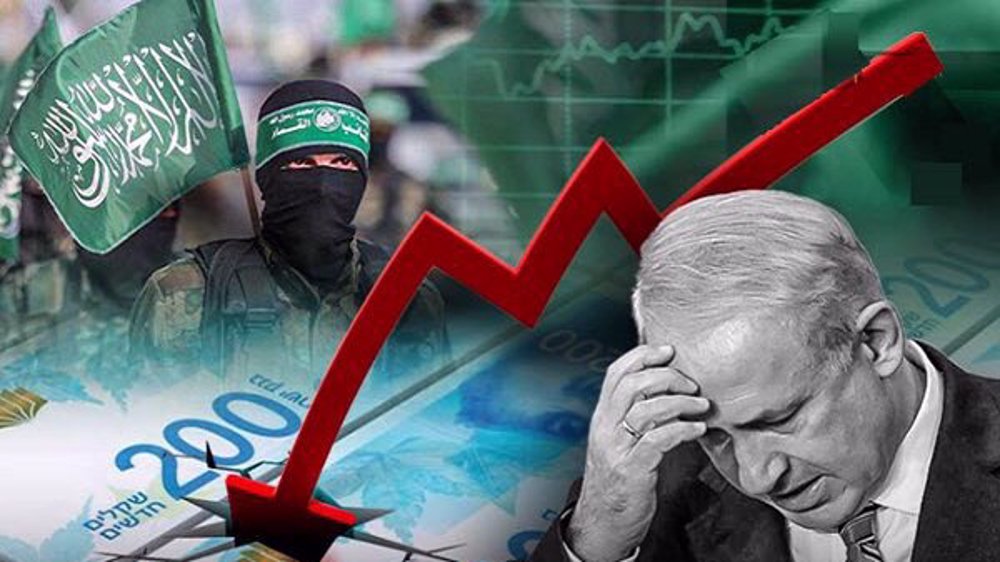


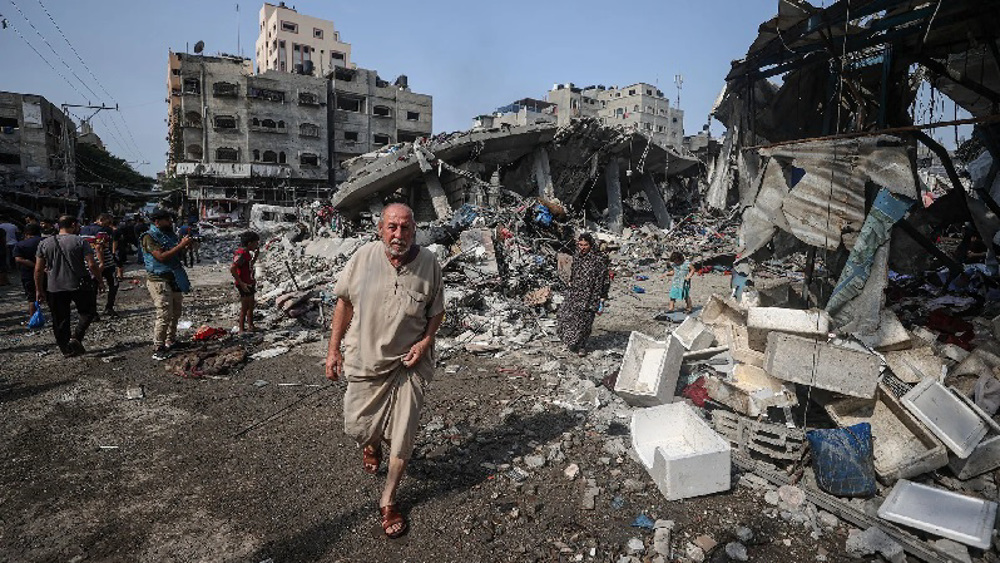

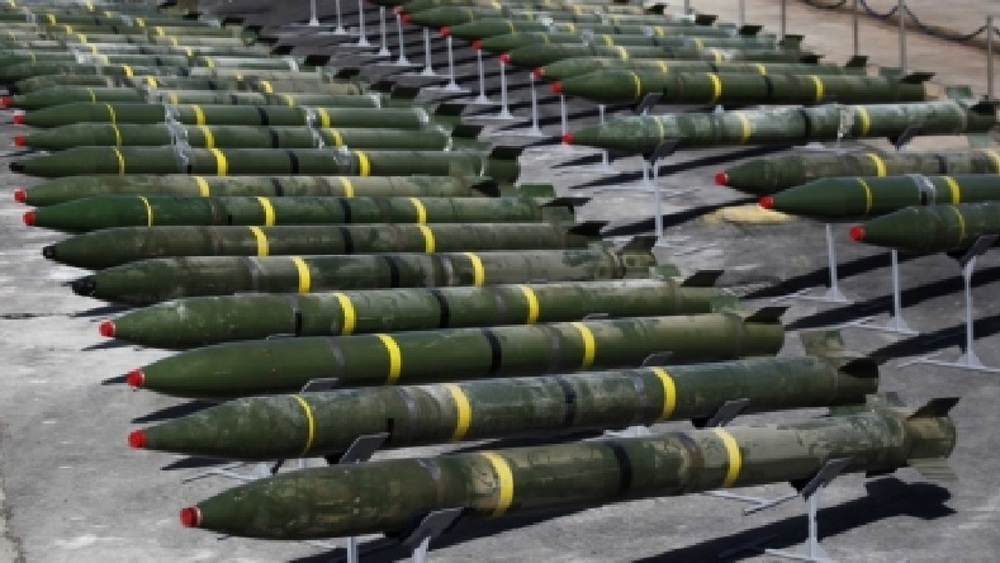
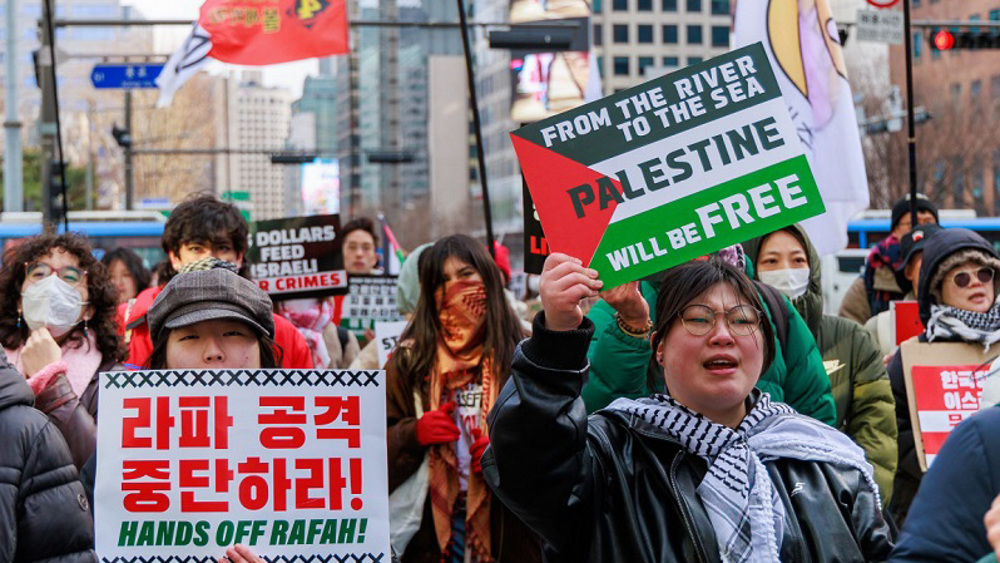



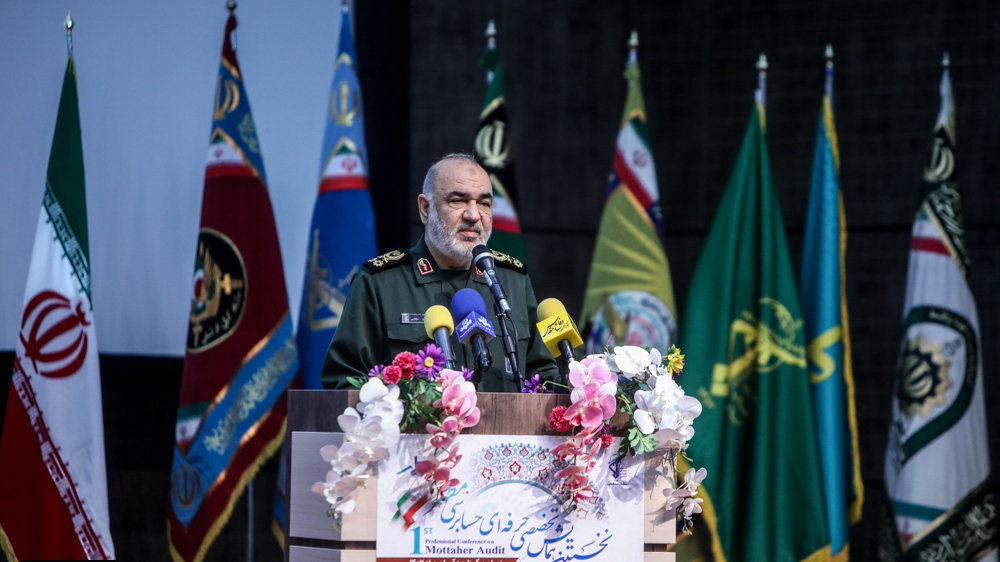
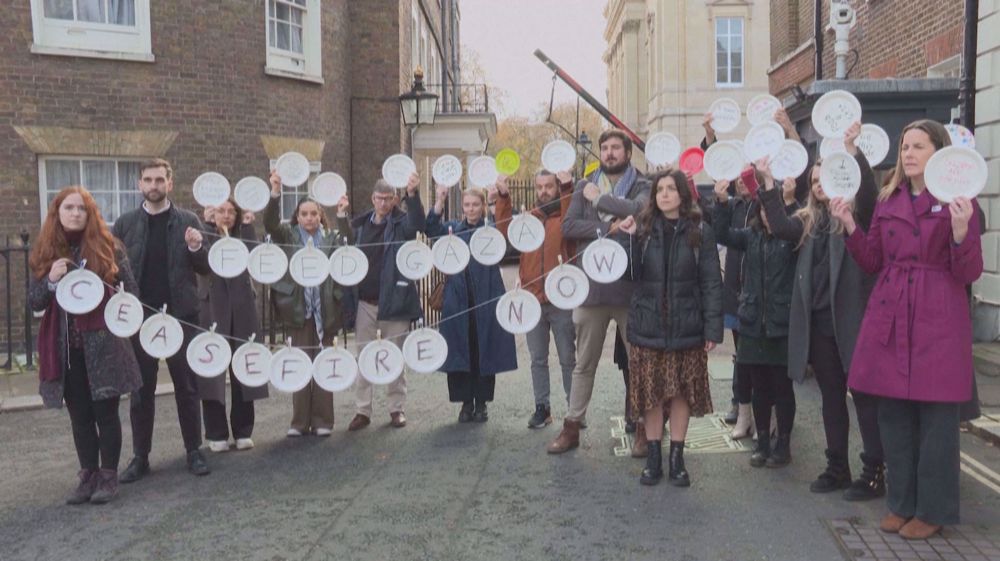
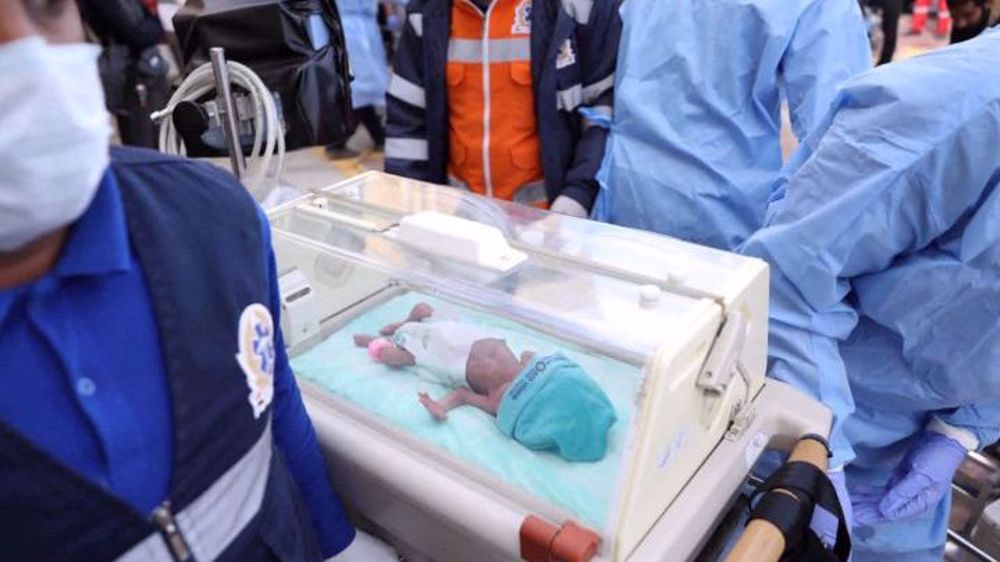



 This makes it easy to access the Press TV website
This makes it easy to access the Press TV website